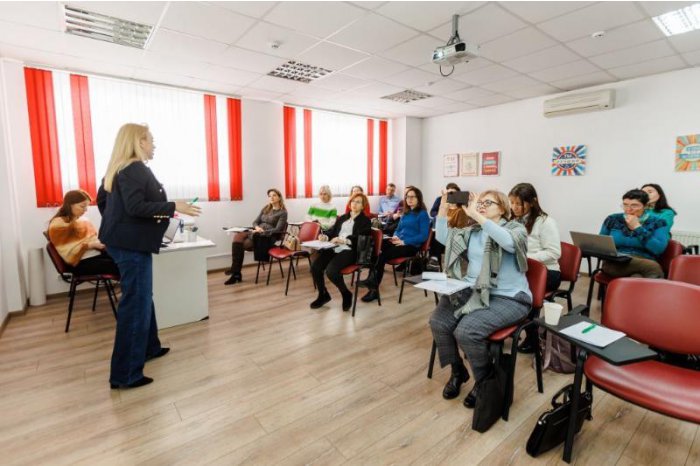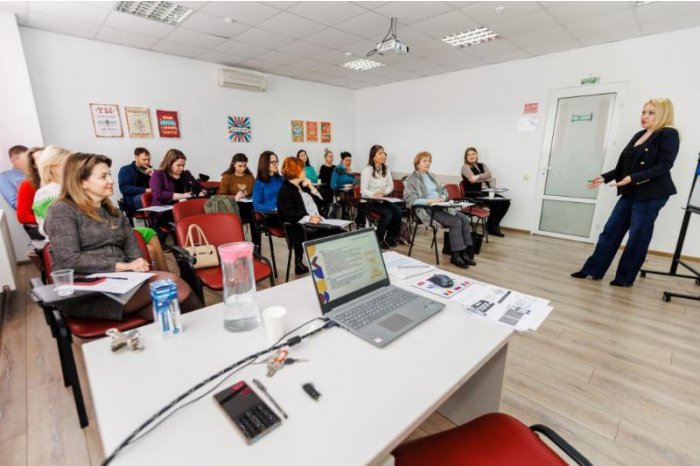Civil society from left bank of Dniester benefits from free of charge courses in Romanian language
15:25 | 27.07.2023 Category: Regional
Chisinau, 27 July /MOLDPRES/ - Twenty five representatives of the civil society from the left bank of Dniester have benefited from free of charge intensive courses of Romanian language, with the support of the European Union and the United Nations Development Programmne (UNDP).
The organizers of the courses of Romanian language did not limit themselves only to the classical receipt of teaching. They gave the students also alternatives, such as: online lessons, topic-related meetings, workshops of discussions at coffee break outside the classes, focused on diverse subjects – history, traditions and customs. Also, all trainings were completed by a vocabulary of terms in Romanian.
„At the end of the course, we have 25 people who learned the Romanian language from the scratch up to the B1 level inclusively, according to the European standards of learning a foreign language. The courses of Romanian are about possibilities and opportunities,’’ the head of the Tiraspol-based Agency for Regional Development, Tatiana Yaskova, said.
„The role of the Romanian language in the projects’ management has been enhanced and it is good for us to understand the partners from the right bank. I believe that these courses will make the partnerships between the organizations of the two banks to be more consolidated and more and the leaders will be able to participate in joint events not only in Moldova, but also in Romania,’’ an expert at the Social Entrepreneurs’ Association, Roman, Sandu, said.
Those 25 students were part of a pilot project, through which the people interested in the studying of the Romanian language managed to overcome the legislative barriers from the two banks of the Dniester river.
The Confidence Building Measures Programme, financed by the European Union and implemented by UNDP, contributes to the consolidation of the trust between the residents on the two banks of the Dniester river, through their involvement in joint development projects.
Photo: UNDP



